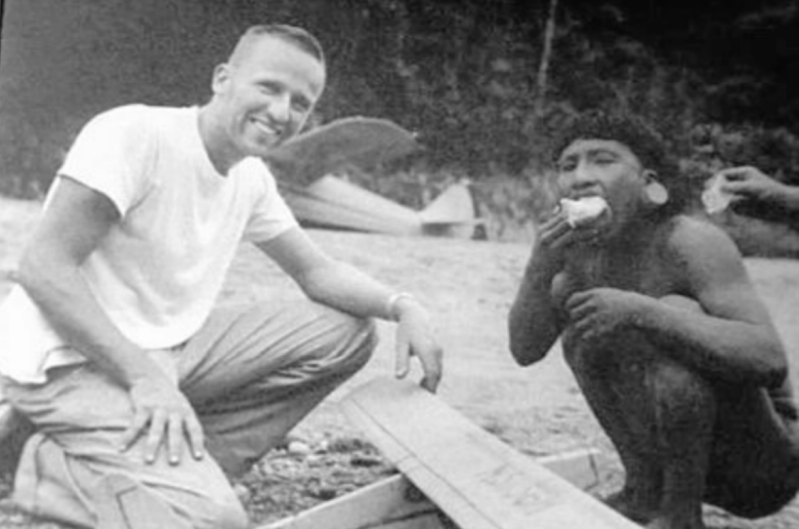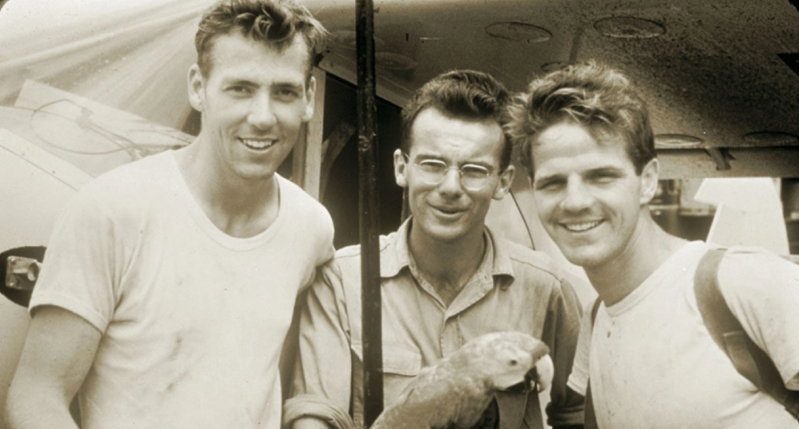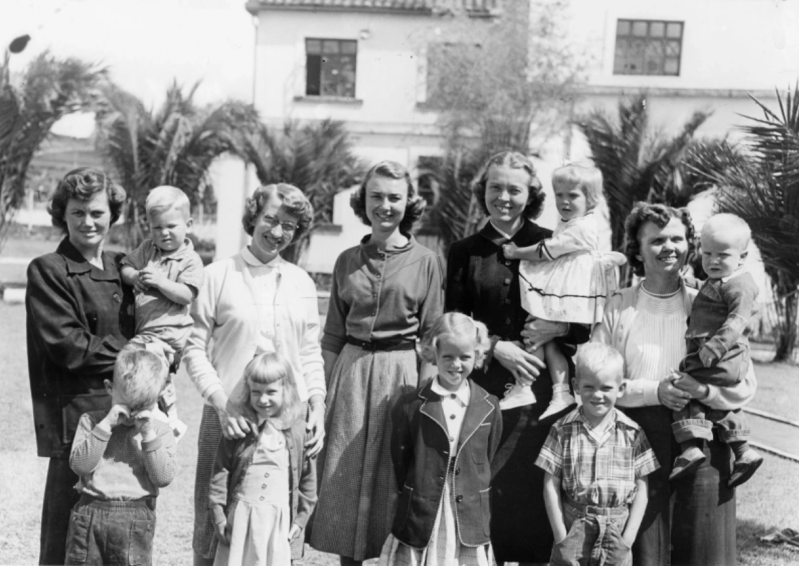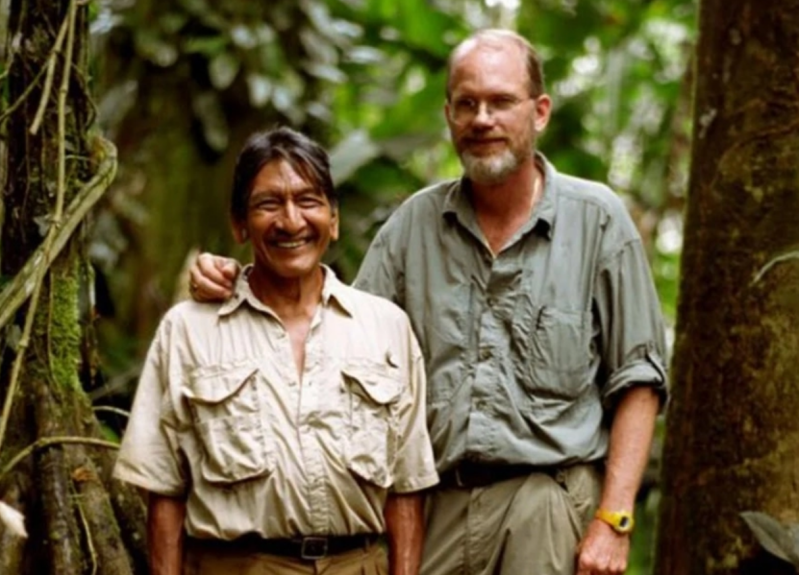
On January 8, 1956, five Christian missionaries lost their lives in the Amazon jungle of Ecuador at the hands of the Waodani, an isolated tribe known for its extreme violence, even within their own group. Jim Elliot, Nate Saint, Ed McCully, Peter Fleming and Roger Youderian were a team of pioneers dedicated to establishing peaceful contact with the indigenous people, with the aim of sharing their Christian faith. On the day they were supposed to report about their first interaction, however, the expected radio call never came.
Jim Elliot had heard about the Waodani, a group that avoided contact with Western society, and dreamed of bringing them the gospel message. Inspired by this purpose, he assembled his team who accompanied him on this daring expedition into the heart of the mighty South American rainforest. After reconnaissance flights, they managed to locate the Waodani villages and planned to approach them with gifts as a sign of goodwill.
However, the challenges were immense. At the time, the tribe was composed of some 300 to 600 people and had a reputation for responding with extreme hostility to any intrusion into their territory. Even within the community there were divisions between the Geketaidi, Baïidi and Wepeidi groups, which led to frequent internal clashes. The mission was named Operation Auca, as the neighboring Quechua referred to the Waodani as “aucas”, a pejorative term meaning “savages” or “enemies”.

The missionaries began throwing gifts from an airplane while repeating phrases in the local language such as “I want to be your friend,” hoping to gain the trust of the tribe. They gave away items such as pots, machetes, clothing, necklaces and other goods. Over time, they noticed that tribal members reacted with applause and friendly gestures during the flyovers, which they interpreted as a sign of acceptance.
On January 3, 1956, the missionaries set up camp at a place they called “Palm Beach,” on the banks of the Curaray River, while awaiting a direct encounter with the Waodani. The first contact occurred on January 6, when a man and two women from the tribe approached the camp. Although the interaction was brief, it encouraged the missionaries to move forward. However, two days later, a group of Waodani warriors surrounded the camp.
Nate Saint managed to reach his wife by radio later that day, excited about the impending encounter: “It looks like they will be here for the service in the afternoon. Pray for us, this is the day! We will contact you in four and a half hours.” But the outcome was tragic. On January 8, the five missionaries were attacked and killed with spears. Their bodies and belongings were thrown into the river.
In the absence of news, an airplane flew over the area the following day, confirming the fatal outcome. Years later, Mincayani, one of the attackers, explained that the tribal elders had interpreted the missionaries' advance as a threat. Four of the five bodies were recovered and buried in a mass grave in the jungle. The news shocked the world and was widely reported in the media, leading to a significant increase in financial support for evangelistic missions.
Elisabeth, widow of Jim Elliot, and Rachel, sister of Nate Saint, returned to the jungle years later as part of a Summer Institute of Linguistics mission. They were able to establish a peaceful relationship with the Waodani, some of whom expressed remorse for the killings.

Then, the translation of the Bible into Waodani began. One by one, the men who committed the murder became believers in the One who sent the missionaries to reach them. Steve Saint spent much of his childhood among the Waodani. Despite the fact that his father had been killed, Steve became an adopted son of the tribe and eventually brought his own family to live for a time among them. The painful arrival of the gospel among these violent people worked a miracle of transformation.
A deeper understanding of the facts
Over time, more details emerged about what had happened. According to accounts gathered later, the Waodani attack on the five missionaries was not motivated by personal issues or by what the white men stood for. The violence arose as a way to divert attention from the deep internal conflicts that the tribe was unable to resolve.
Of the three Waodani who had initially visited the camp in Palm Beach, two claimed that the missionaries had mistreated them, while the third denied these allegations. Although other members of the tribal group acknowledged that these claims were false, it seemed easier to blame the missionaries and eliminate them than to confront the internal problems. Once the idea of killing them came up, the atmosphere in the tribe quickly aligned with their cultural patterns of combat readiness.
Although the Waodani knew that the missionaries carried weapons, they were unaware that the missionaries had decided not to use them under any circumstances. During the attack, several members of the tribe reported witnessing unusual phenomena: they heard supernatural voices and saw lights in the sky. For some, this was interpreted as a divine manifestation, an angelic choir celebrating the missionaries' faithfulness and welcoming them home, according to their faith.
A tale of redemption and transformation
The Waodani have a remarkable memory for the details of their battles, with conversations often revolving around scars, wounds and tales of past combat. It was years later, however, that Steve Saint heard the full account of the attack on the missionaries. During an evening fireside chat, the older warriors relived the event, still surprised that the white men did not fight back.

In 2006, this story was made into the film A Punta de Lanza, directed by Jim Hanon. Today, the Waodani continue to live in the Ecuadorian Amazon, although no longer in complete isolation. They face new challenges, such as dependence on external resources and the struggle against oil exploitation in their ancestral territory.
Originally published by Diario Cristiano, Christian Daily International's Spanish edition.





